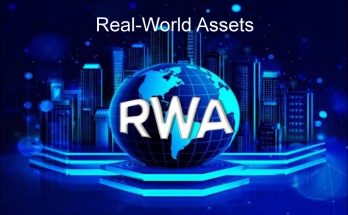Credit card rate hikes reviewed, penalty fees crimped
Most penalties credit card will be limited to $ 25 and fees for customers who do not use their cards will be eliminated under rules issued Tuesday by the Federal Reserve. The Fed also has ordered a review of all walks of credit card interest rates charged since January 2009, including most of the record increases which came in the wake of a nationwide reduction in credit.
The rules, which implement a final set of changes that Congress passed in May 2009, will take effect Aug. 22. “The guidelines of the Federal Reserve released today are good news for consumers,” said Rep. Carolyn Maloney, DN.Y., one of the authors of the laws of a credit card.
The Fed’s rules could result in lower interest rates for consumers. Banks should reconsider the reasons for these increases that began in the last 18 months. They would have to cut rates if the reasons for the increase no longer exist, and regulators to review and implement such reductions.
Consumers will be more immediately notice the new limit penalty fee of $ 25. Reduce the cost penalty is a central provision of the law of credit card, but Congress has allowed the Fed to determine how.
The Fed gives way to a penalty fee to pay more if the consumer has shown a pattern of “repeat” violations, or if a card issuer can show that higher fees reasonably compensates its own costs in processing the violation prompting the penalty.
Other parts of the new regulations
Consumers will not have to worry about being paid a fee for not having to use their credit cards. The penalties may not exceed the dollar amount incurred by the violation of a consumer who has led the charge. For example, if a customer is late paying a $ 20 minimum tax may not exceed $ 20. A consumer who exceeds the credit limit of $ 5 can not be charged for overlimit fees-more than $ 5.
Consumers will no longer penalty charges multiple, if the offense was based on a single payment late. The measures announced Tuesday by the Fed to supplement the above rules enforcement in 2009 credit card that are already in force.
From February, issuers have been banned from hiking interest rates on existing balances as long as customers paid their bills on time. They must also inform customers at least 45 days in advance of interest rate increases and changes the cooler.
The Fed has been responsible for calculating a way to fix the penalty fees in a manner that is “reasonable and proportional” to the violation that caused the tax.
Consumers won a victory, given that these fee caps beyond what the Fed had suggested earlier this year in a project. The limit of $ 25 will result in significant savings for consumers who face a penalty fee of $ 39 median, according to data gathered by the Pew Safe Credit card project.
However, if a cardholder is late or the credit limit twice in six months, issuers may increase the second penalty fee of $ 35 or more if the issuer can not justify the tax agencies regulations in accordance with the rules of the Fed.
Although the Fed is cracking down on penalty fees, it did not respond to higher interest rates that are imposed on consumers who violate the terms of their credit card agreements.
Thus, a consumer who spends more than his credit card limit of $ 15 may face a charge of $ 15. But the consumer could still face a penalty permanent hike interest rates, which apply to all future purchases.
However, some banking groups have concerns. Financial Services Roundtable senior lobbyist Scott Talbott warned that the Fed CAP on penalty fees will limit the ability of industry to offset the risk that credit cardholders do not pay their bills.
“The restrictions in the rules issued by the Fed will reduce the ability of the credit card industry to price risk and the net effect is a reduction of credit the availability,” said Talbott.
Visits: 57



